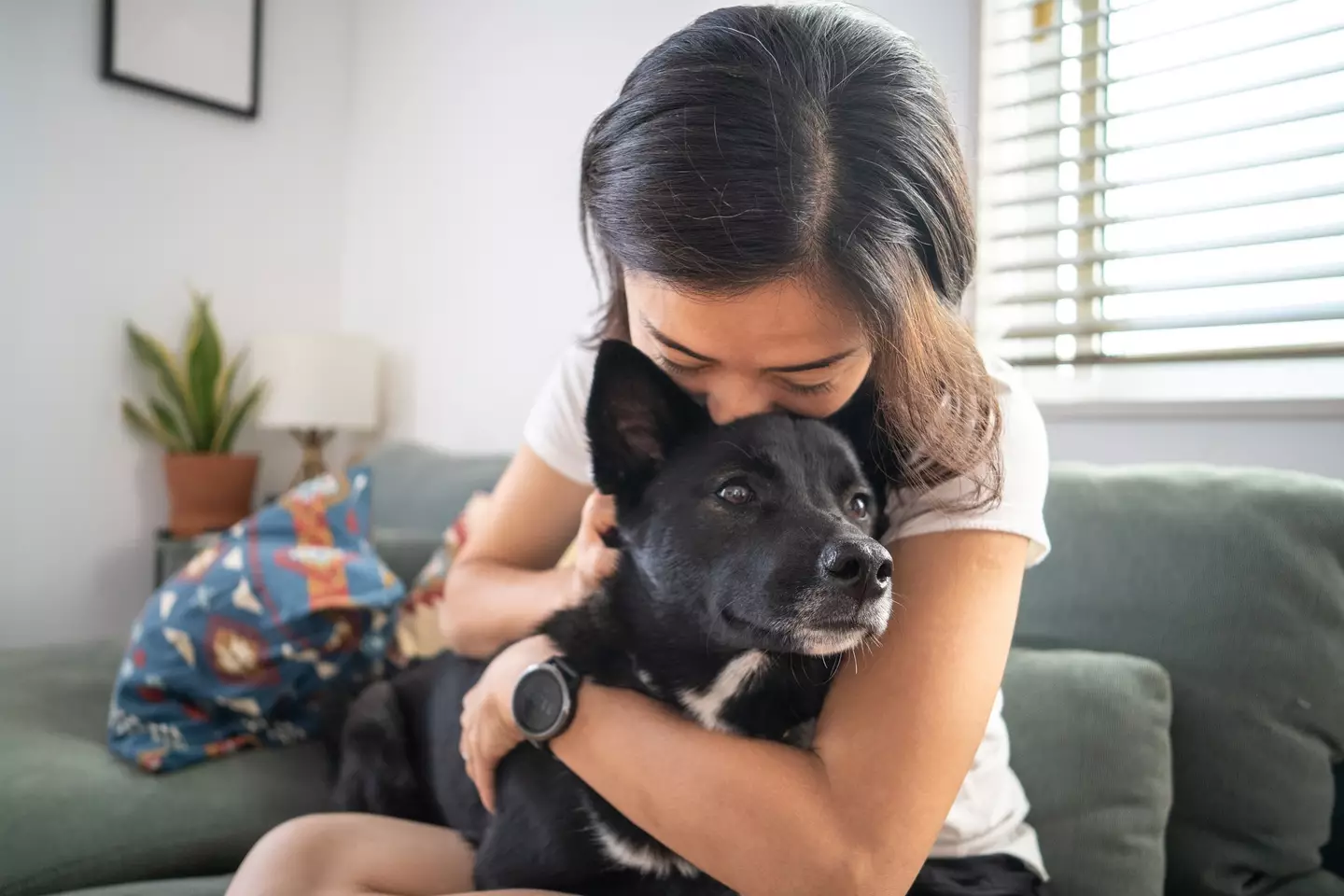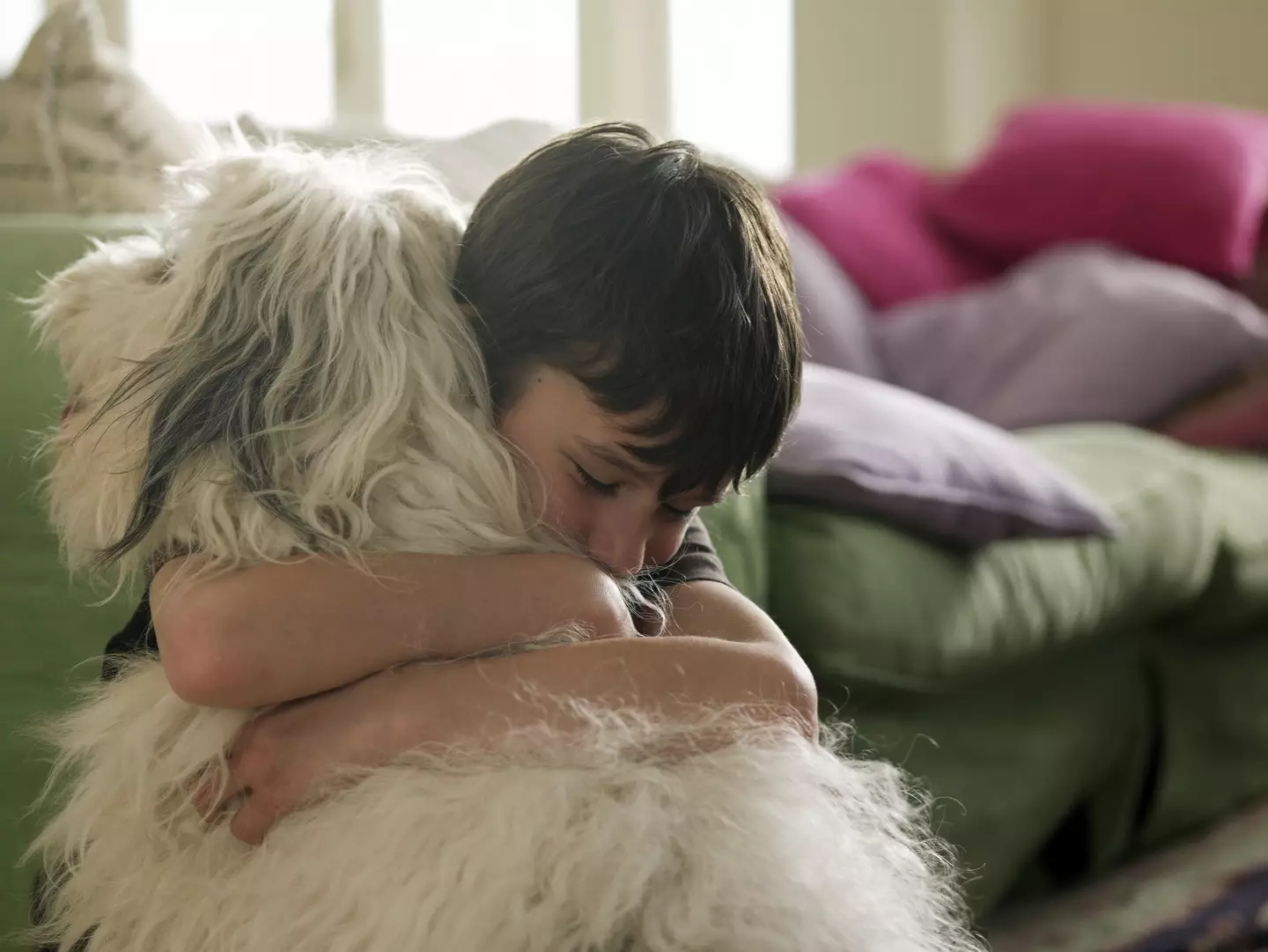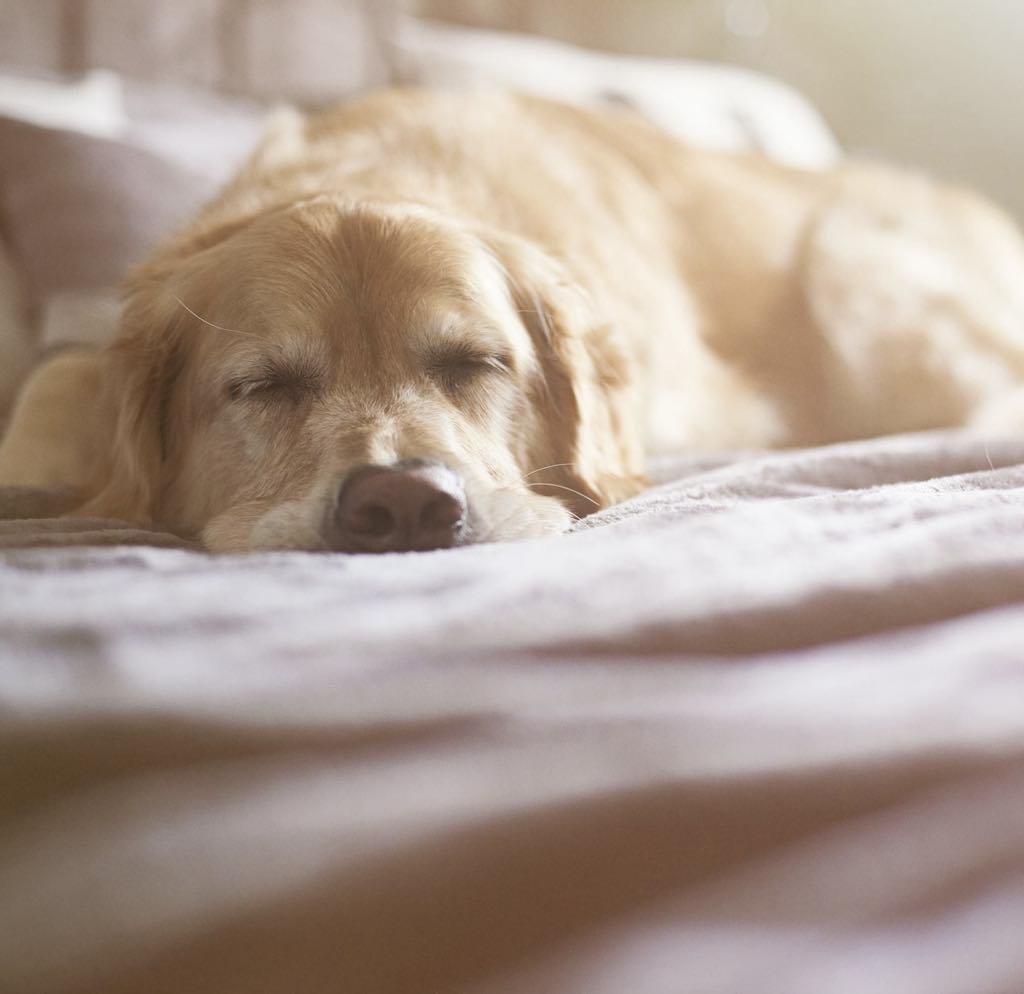
A vet has warned how a ‘hug’ can make a dog feel, and it’s not necessarily what you would expect
A vet has warned that it could be a bad idea to ‘hug’ your dog, as it could have the opposite effect on them to what us humans feel.
There’s nothing nicer than coming home from a long day at work to your furry friend scurrying as fast as they can to the door to greet you.
Your natural reaction is usually to bend down and give them a big cuddle, and whilst it might look like they’re loving every second – it might not be what they’re really feeling.
Dog experts are now warning owners to find different ways of showing their love.

According to a vet who spoke to Psychology Today, a hug can actually make a dog feel quite anxious and trapped – this is because a dog’s primary defence is to run away.
Psychologist Stanley Coren explained: “Yes, your dog may leap into your lap and kiss your face, cuddle against your neck, and beg you to rub her belly.
“But that’s not ‘hugging.’
“In my experience, many dogs don’t enjoy having a human move one or two arms around their shoulders and squeeze.
“That’s the hug we are talking about.”
Behaviour Vets author Lauren Novack believes dogs who do enjoy hugs are a complete ‘exception’, reports Daily Paws.
She said: “When dogs don’t like something and politely ask for space over and over again to no avail, they’re likely to escalate their communication to growling or biting.
“I don’t want dogs to be stressed, and I don’t want humans to get bitten. For most dogs, hugs are stressful.”

Stanley previously analysed 250 photos of dogs being given hugs, and he found that in 80% of the images, the dogs showed signs of looking stressed.
And he noted that this can be indicated by a dog lowers their ears, closing their eyes, or turning away from the source of anxiety.
And the psychologist has now revealed some much better alternatives.
He said: “The clear recommendation to come out of this research is to save your hugs for your two-footed family members and lovers.
“It is clearly better from the dog’s point of view if you express your fondness for your pet with a pat, a kind word, and maybe a treat.”
And the last thing we want to do is upset our furry babies, so we’re definitely going to take this advice on board!
Science Shows That Women Sleep Better Next To Dogs Than Men

The importance of sleep for one’s health should go without saying. The ideal approach to obtain restful sleep is a topic of great interest to a large number of researchers. But forget about meditating before bed and drinking chamomile tea. It has been found that women sleep better when their dogs are nearby. That’s correct, a study by Canisius College in New York State revealed that dogs make more comfortable sleeping companions than either people or cats.
Christy Hoffman, Ph.D., an animal behaviorist and the study’s chief researcher, said, “We found that women commonly rate dogs as better bed partners than cats and human partners and report that their dogs enhance their sleep quality.”
According to Research, Women Sleep Better Next to Dogs
Hoffman arrived at these conclusions after surveying almost a thousand American women. According to the findings, 31% of the participants and 55% of the participants shared a bed with a cat or a dog. Moreover, 57% of these ladies slept in the same bed as a human companion, compared to the other 40%.[1]
Hoffman also found out why dogs appeared to be the most comfortable bedmates.The first explanation is that dogs’ sleeping habits more closely reflect human sleep patterns than those of cats.
Hoffman stated, “It is not surprising that dogs and cats have different sleep schedules because dogs’ major sleep periods tend to coincide more closely with humans’ than do cats’.”
Even though these similar sleeping habits might have advantages, additional research is necessary to be certain. However, Hoffman has some ideas about how this might function.
She said, “Dogs may be better at accommodating their human’s sleep schedule than human bed partners.” Human bed companions frequently go to sleep and wake up at significantly different times from one another. Sleep disruption is undoubtedly a result of schedule discrepancies between spouses. It’s possible that canine bed companions adjust to their owner’s schedule more easily than do human bed partners.
Dogs also need specific routines and obligations, like an early morning stroll. These kinds of regimens support their users in sticking to a schedule, which enhances the quality of their sleep.
Calm and Safety
Dogs also have a tendency to remain rigid during sleep. Anyone who has ever shared a bed with a fidgety partner understands how annoying they can be. Nonetheless, the study’s female participants stated that, in contrast to cats, who tended to come and go, their dogs spent the most of the night on the bed.
This implies that cats might be more prone than dogs to disturb sleep by getting in and out of bed at different times. Furthermore, Hoffman stated, “We discovered that dog owners tended to go to bed and wake up earlier than cat owners and also adhered to more regular bedtime and wake time schedules.”
The third and most crucial reason is that dogs provide their owners a sense of security.more so than in relationships with humans or even cats.
“Some dog owners may find solace in the knowledge that their pet will notify them in the event of an intruder or other emergency; also, a dog’s barking may dissuade a possible invader. Hoffman stated that whereas a dog may offer psychological consolation, a cat is less likely to assume this function.
The Ideal Sleep Partner
Dogs are the ideal sleeping companions, according to the study, although their advantages vary depending on the situation.A dog might, for instance, snore or overheat the bed. Furthermore, a lot of owners report that their cats aid in their ability to go asleep.
Remember that the study relied on the volunteers’ perceptions of the effects of their pets on the quantity and quality of their sleep. Therefore, further impartial study is required before it can be said with certainty that dogs make better sleeping companions. Nonetheless, Hoffman thinks that since pets are common in American homes, these research might be helpful.
“This line of research will be valuable to develop a clearer picture of the contexts under which co-sleeping with a pet may be detrimental to one’s sleep quality, and the contexts under which pets and their presence in their owner’s bed may positively impact sleep quality,” the spokesperson stated.
For example, studies have indicated that women sleep better on their alone than in the company of a human, but many people hold the opposite view. In the future, scientists may employ Fitbit-like gadgets to measure people’s sleep quality objectively under various sleeping scenarios.



Leave a Reply